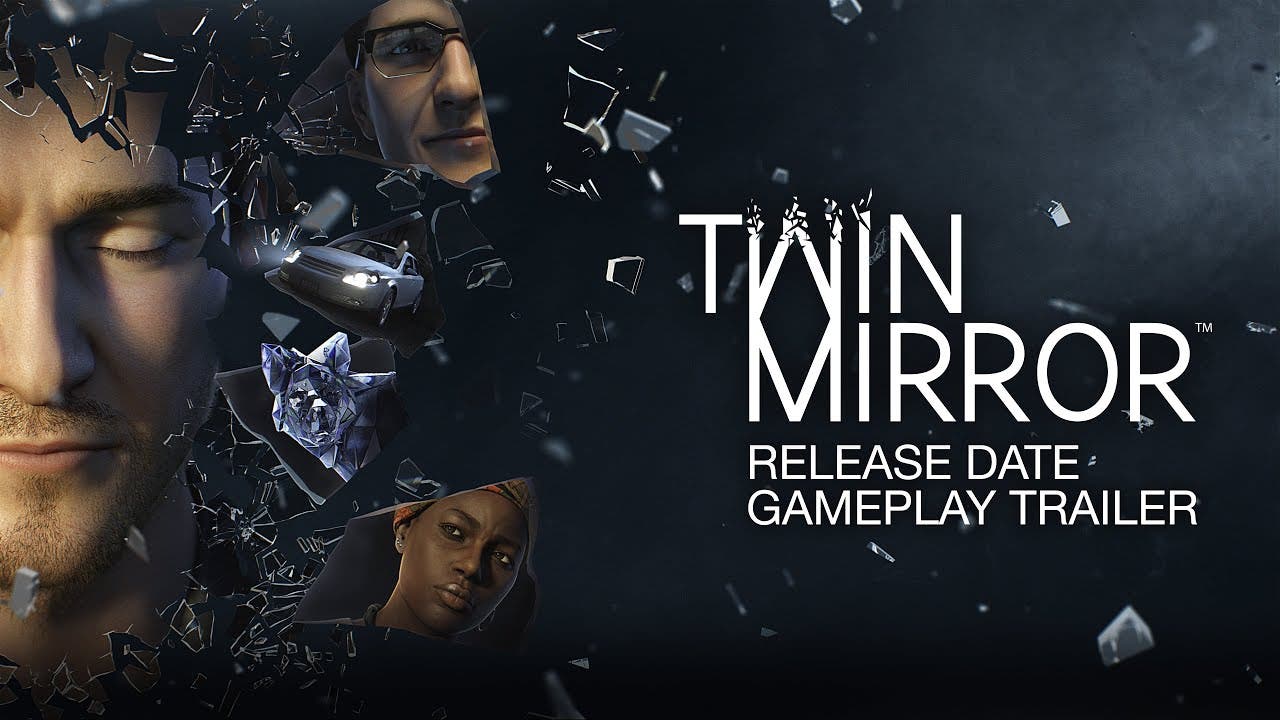

Mental health is a topic seldom explored in gaming because it’s hard to get right. Sam Higgs is allowed to be vulnerable, and the gameplay and story benefit greatly from this openness. While Twin Mirror is a game firmly rooted in reality, its use of surrealism allows a powerful exploration of mental illness and how it can warp the perceptions of the human mind. His coping methods are strained as the investigations continue and he’s confronted by the impact he’s had on the people of Basswood. Twin Mirror frequently dips into horror to demonstrate Sam’s loosening grip on reality. A maze forms in the centre, and Sam nearly loses himself inside it. Bar stools and bottles float aimlessly in the air. While the opening chapters present a Mind Palace in perfect, orderly form with memories arranged by object type, later chapters see the Mind Palace in shattered form. The further he explores the reality of Nick’s death and its potential to be a outright murder, the more Sam’s worldview shatters. His mindscape becomes more frantic as he discovers the truth and it’s represented in his outward behaviour towards Anna and the townsfolk, as well as the visuals within the Mind Palace. It’s an effective visual too, making for some stunning scenes on the strange and broken roads of his mindscape. Mirrors are a recurring motif within the game, representing Sam’s sense of self and his perceived reality. It’s represented in the titular Mirror-like world, where memories and images form in shattered glass. But upon entering his Mind Palace, or whenever his Double appears in everyday conversations, we see how shattered his sense of self really is. Superficially, Sam appears to be coping well. Twin Mirror is fundamentally a murder mystery, but it isn’t afraid to explore the effects of mental illness and being neurodivergent can have on life. The conversations they have and the strict control he maintains in his Mind Palace function as representations of dealing with severe anxiety and depression. To cope with the reality he’s facing and the potential murder of his best friend, Sam relies heavily on his Double to make decisions. Part of this maintenance is aided by the rational half of Sam’s mind. It exists as a separate entity and guides him through the decision-making process, splitting his decisions in-game by adding a rational commentary to his scattered thoughts.

It also requires a strict level of concentration and control to maintain, which can be broken by the realities of Sam’s life. The Mind Palace is perfect for escaping to a safe space and reordering Sam’s thoughts. It riffs off ideas found in real-life psychology, existing as a means to maintain control.

It slows time on his end and gives him space to breathe away from the pressure of real life. In the Mind Palace, Nick can gather all the information he’s collected to form new hypotheses and rearrange his thoughts. That pressure results in a rather unique coping method: a splintered personality and a psychic arena known as ‘the Mind Palace’. Sam’s ex-girlfriend Anna demands justice and answers for Nick. Nick’s daughter Joan demands accountability for her lost uncle. He’s forced to confront his pariah status in the town, as well as the consequences of leaving. If you or any of your relatives have a history of seizures or epilepsy, consult a doctor before playing.Sam’s return to Basswood is filled with loneliness and guilt. The risk of photosensitive epileptic seizures may be reduced by taking the following precautions: sit farther from the screen, use a smaller screen, play in a well-lit room, do not play when you are drowsy or fatigued. Parents should watch for or ask their children about the above symptoms – children and teenagers are more likely than adults to experience these seizures. Immediately stop playing and consult a doctor if you experience any of these symptoms. Seizures may also cause loss of consciousness or convulsions that can lead to injury from falling down or striking nearby objects. These seizures may have a variety of symptoms, including lightheadedness, altered vision, eyes or face twitching, jerking, or shaking of arms or legs, disorientation, confusion, or momentary loss of awareness. Even people who have no history of seizures or epilepsy may have an undiagnosed condition that can cause these “photosensitive epileptic seizures” while watching video games. IMPORTANT HEALTH WARNING ABOUT PLAYING VIDEO GAMESĪ very small percentage of people may experience a seizure when exposed to certain visual images, including flashing lights or patterns that may appear in video games. All Rights Reserved.ĭONTNOD® and Twin Mirror® are registered trademarks of DON’T NOD ENTERTAINMENT.


 0 kommentar(er)
0 kommentar(er)
